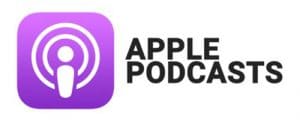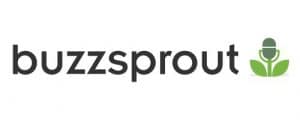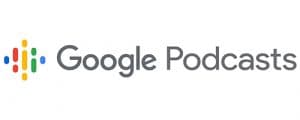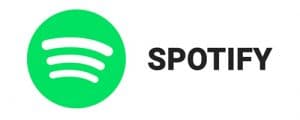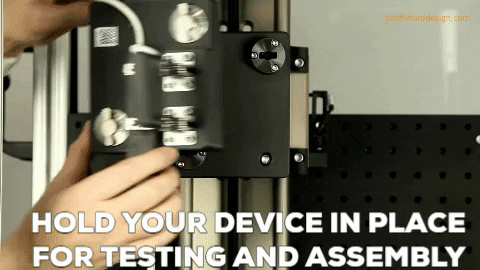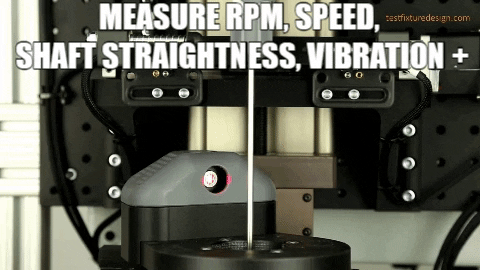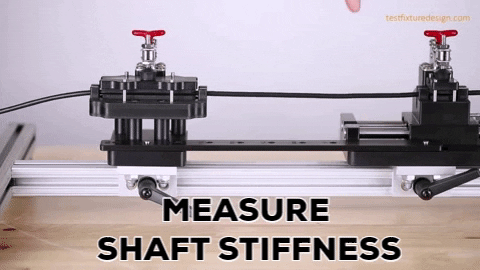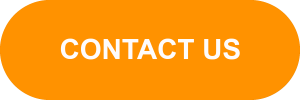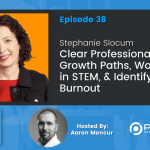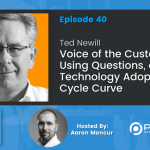Joel Williams Processes For Life & Business, McDonalds Ideas, & Feel Good vs Real Good
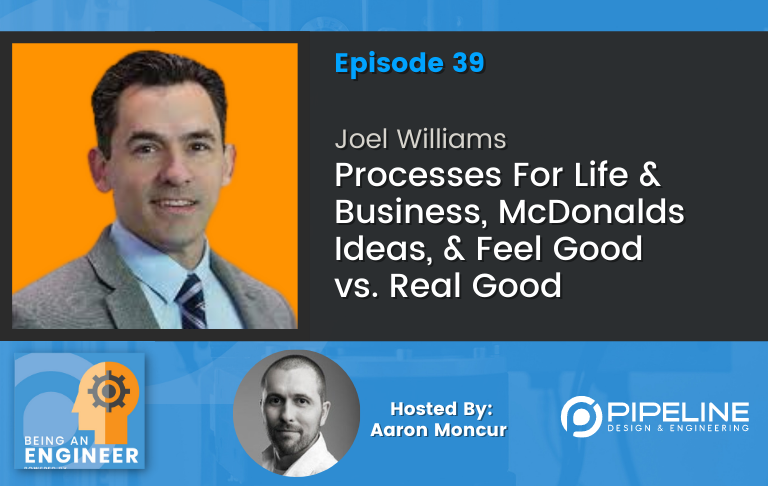
Joel Williams
Joel Williams and I met in college where we were roommates and both earned a degree in mechanical engineering. He then went on to earn a master’s degree in Materials Science from MIT, followed by an MBA from Harvard Business School. Moreover, he has worked in many industries including semiconductors, automotive, industrial chemicals, medical devices. Currently, he serves as President at a company called ILC Dover.
Beyond being ridiculously smart, he is also one of the calmest and most humble people that I know. I have been so impressed with the way he lives his life, both from a professional and a personal standpoint. I was deeply grateful that he agreed to spend an hour with me on the podcast sharing his wisdom. This episode is probably the least about the engineering of all the episodes we’ve done to date. Yet, it may be one of the most impactful to you as a listener both professionally and personally.
EXPAND TO VIEW EPISODE TRANSCRIPTION
SUMMARY KEYWORDS
people, life, learn, team, teaching, quiet, work, principle, spend, important, call, feel, meditation, define, ideas, career, user guide, engineering, joel, valuable
SPEAKERS
Joel Williams, Aaron Moncur, Presenter
Presenter 00:00
The being an engineer podcast is a repository for industry knowledge and a tool through which engineers learn about and connect with relevant companies, technologies, people, resources and opportunities. Enjoy the show.
Joel Williams 00:15
But if you decide that you can only learn from people that are, quote unquote smarter than you, then you’re going to have a very limited life and a very limited ability to keep growing. And I think that’s a true principle, right? If we’re honest, everybody we meet is our superior in some way.
Aaron Moncur 00:49
Hello, and welcome to another exciting episode of The being an engineer podcast. Our guest today is Joel Williams, who I am super excited to talk with and share with the rest of you because he is a dear dear friend of mine, and has been for many years, Joel and I met in college where we were roommates and both earned a degree in Mechanical Engineering. He then went on to earn a master’s degree in material science from MIT, followed by an MBA from Harvard Business School. He has worked in many industries, including semiconductor automotive, industrial chemicals, medical devices, and currently serves as president at a company called ILC. Dover. Because jewel is a personal friend of mine, I thought I’d share a little more beyond the general intros I do for most guests. A quick story, we took several classes together back in college, one of them was a physics class that I remember in particular, and I remember studying for this one test, probably spent two weeks getting ready for it. And I think I got a beat or something. Joel, on the other hand, walked past the testing center one day and on a whim, without having studied at all decided to take it down in there and aced it. And I’m probably embarrassing him a little by sharing this story. But it highlights the fact that in all honesty, he is probably the smartest person that I know. And and beyond just being ridiculously smart. He’s also one of the calmest and most humble people that I know, I have been so impressed with the way that he lives his life, both from a professional and a personal standpoint, and count myself incredibly fortunate to be able to call him my friend. So with that, we’ll get started. Joel, thank you so much for spending some time with me on the podcast.
Joel Williams 02:38
Thanks for having me, Aaron.
Aaron Moncur 02:39
What made you decide to become an engineer?
Joel Williams 02:43
You know, I, I’ve always loved taking things apart. And I think learning how they worked really was fascinating to me. Growing up, my dad had never gotten to college. I wasn’t really exposed to a lot of career options early in life. And so when my sister, my older sister was helping me get set up in college as a freshman, she signed me up for a major and I just kind of went with it. I think many of my engineering courses, you know, along the way answered, deep questions I had had for a lot of my life, you know, I remember just being enthralled with heat transfer and fluid dynamics and, and things that have been fascinating to me. And so I think that was how I kind of chance to end engineering.
Aaron Moncur 03:30
That’s hilarious. I had no idea that was how you got into it. And it, it almost mirrors how I got into it, which was my dad asking me what I was going to do in college, and he’s saying, I don’t know, and him saying you should try engineering and be saying, okay, and that was about the extent of it. How funny. Well, it’s a good thing our family members know as well. Time is the one thing that we all have about the same amount of yes, some of us are able to use the same amount of time much more effectively than others. Can you share? What are some time management hacks or best practices that you’ve incorporated over the years?
Joel Williams 04:06
Yeah, I think it’s an important question. It’s, for me, it’s all about minimizing distractions. And it means you’re working on the right things. You’re minimizing disruptions to you working on the right things, and you’re measuring those things. And so, I think, working on the right things, I think a lot of engineers, certainly me included, love to learn and explore as a result. You know, we’re capable of spinning eight hours on a fancy spreadsheet. If we don’t have the discipline to kind of move on and our nerdy minds. You know, this is this work feels good to us. It’s feel good work, right. Often, though, I think the most important work we can do is is not that interesting new combination of Excel formulas and VBA code that work that matters when Post is kind of what I call the real good work, as opposed to the feel good. And it’s, it’s what’s really going to move the needle needle on our major goals. And I think, to be effective, we have to build a process that feeds that real good. And starves or limits the feel good that we that we spend in life. And, you know, to plan the work around that with purpose, and then stick to it, you know, stick to that plan as close as closely as practical, I’d say. When it comes to minimizing this, the disruptions to that work that we plan, you know, I think rule number one there in my mind is, we have to acknowledge that multitasking is always suboptimal. Next, for me, it’s super valuable to get up early. I once had a job where I would race my boss for the first parking spot. And he got it got me to the office, sometimes between four and five in the morning. And I learned that when I got there, when I when I got there, and I was there without distractions he lived he his office was a floor above mine. So we both had the floors to ourselves. My mind started having these deep thoughts that I could not otherwise find among the hustle and bustle of a normal workday, or at the end of a work day, when I was tired, and it finally got quiet again in the office. And then I’d say the final point on the disruptions, like I am maniacal about denying notifications from any app or browser tab or anything. You know, and to the point where, like, I have family text threads that I silence or leave if they’re just undisciplined about things. And it seems small, but it’s a big deal for me, because I think when we get pulled out of stuff, it takes us a while to recenter in what we’re doing. And then I think as you think about measuring this stuff, I time track, you know, what, what are the real good things on my calendar by colors in my my calendar, I can look and tell you how many hours I spent on this important initiative last week, just at a quick glance by color, and then I actually get up every morning when I start my work. I log what time did I start work? And what time did I finish? And what time off during the day that I take? So I can I can know how many real hours I’m putting of effort. I don’t I don’t have to report that through earnings or paycheck or anything. I do it for me. I don’t show anybody. But I look at it, I graph it. And I know that I’m focused on the right things. And so those are some of the things that I do on a regular basis to make sure time matters.
Aaron Moncur 07:46
Well, so much good stuff there. I agree 100%. avoiding distractions, and carving out time for yourself in the morning. Seems to be really effective. I don’t wake up as early as you do. I don’t get to my office between four and five for sure. I don’t,
Joel Williams 08:03
I don’t anymore, either. But there was a time and that that taught me. And so it’s harder as you get older. Probably.
Aaron Moncur 08:12
Yeah. Yeah. Just the other morning, I was working on something, I tried to do all my more challenging or mentally taxing tasks in the morning because I find I’m better at those tasks in the morning than I am in the afternoon. But this morning was I was I was doing really well. I was getting through stuff. And then someone called me. And I probably didn’t have to take that call. But I took it anyway. And it ended up being this 30 minute call with one of our customers. And then someone called me again. And I took the second call. And at noon, I looked back on my morning and I thought I did not protect my time very well, this morning, there was a full hour that I did not have to spend that I did. And I didn’t get the things I needed to done as a result of it. So let’s see moving on here. I feel stress. I think everyone feels stressed. That’s a part of it. Part of life. How do you keep it from becoming overwhelming? Like what what routines or practices? Do you have to mitigate stress in your life? Yeah.
Joel Williams 09:17
I think everybody feels stressed from different sources. And it probably depends to some degree on our upbringing, and our kind of current support network. For me, I feel like stress comes from when my life is out of balance. Or when I feel like I’m behind on something and you know, obviously the two are, are correlated. And so for me, I think Leading a Balanced Life to feed all portions of ourselves that are important. You know, and that’s a that’s an important principle for me to de stress. This is a concept that was taught to me by a professor years ago. only 16 years ago, he had taught at MIT he was currently teaching at HBS. And he said, there’s four parts of yourself that need to be fed. And to do that I set goals and track my contributions in each area, I’ll tell you that the four along with an example of kind of one of my current goals, and each of them, you know, intellectually is what is one way and even though I’m a super slow reader, like a lot of engineers, I, I’ve set this goal to read a book every month, this year. Physical is the next space. And, you know, my goal this year is, I will get five cardio sessions every week, and three strength training sessions every week. You know, the third bucket is social. And so for me, connecting with four people in my network of people that I care for every week is what I do and track there. And then the final one for is spiritual, you know, feeding our spirit. And I think, you know, for me, I’m really focused every morning, I’m getting my scriptures read and praying, every single day, most days, it’s first thing, or some crazy days where, you know, it has to be at another time. And then I would say,
Aaron Moncur 11:20
meditation is a kind of a big deal these days. Right? People talk about it a lot. I’m really curious to hear your take. What do you think the differences between meditation and prayer? Or do you think there even is a difference?
Joel Williams 11:32
I think there’s a lot of overlap there. You know, I’ve I’ve tried different types of meditation over the years. And I think, you know, for me, prayer is a subset of meditation when done right. And I think it’s, for me, the reason it’s my preferred flavor of meditation, I guess is, I feel like there’s deep purpose there. It trains my mind and specific things. For instance, you know, when I begin a prayer, I always am thoughtful about what are the things that I’m giving, giving thanks for? And that trains my mind to look for and spot the positive in my life? And, you know, could you get some of that benefit out of a daily gratitude journal? Absolutely. And I actually do that too, later in the day, but I think it’s a specific kind of meditation that, for me, brings great purpose and peace. And so I think it fits into that trend. It’s my preferred type of it. But there’s other kinds that other people probably benefit from as well.
Aaron Moncur 12:44
That’s great, thank you, I cut you off, you were saying something else.
Joel Williams 12:47
I think I was just gonna say, you know, as you think about running that balanced life, you know, having good process around that, to make whatever goals you set to keep balance, become part of your daily routine is really valuable. You know, I’ve learned over the years as I’ve, you know, when I say, hey, I want to do this, you know, twice a week or once a week, it’s a lot harder to do than, hey, I’m gonna do this every workday every Monday through Friday, right? Like, when I have something that I can build it into a process, it’s much easier to get there. I love process
Aaron Moncur 13:23
as well. One of the things that I have admired so much about you over the years is your ability to teach, you have really this uncanny capacity for breaking things down in a way that makes the problem easier to understand. And I can attest to this, having been the recipient of this help many times in a variety of our engineering classes 20 years ago. So I know that that skill has only gotten better over the years, when you’re teaching a principle or a skill to someone, what, what is the mental checklist that you go through or the process that that you try and follow?
Joel Williams 14:00
Gosh, I yeah, I don’t know that I haven’t defined kind of standard work for teaching. I would say, you know, things that are important that I’ve learned, you know, probably first is empathy for those that are learning. And, you know, trying to put ourselves in their shoes from the perspective they have and how they’re approaching a subject. You know, personally, I’m not a fast learner. I’m more of a deep learner in a lot of cases. And when I try to teach, I try to simplify things just as much as I can. And then create structure around the principle that we’re teaching. I would say no kind of practicing teaching, whether it’s at work with my children at home or at church, when I’m when I’m in a position to teach there, you know, obviously helps. I guess one of the kind of big guys The principles for me around teaching comes back to this principle that Peter Drucker taught a long time ago. And, you know, the principle is, you know, if you have knowledge, it’s kind of your responsibility to verify that others are getting it. Right. You know, you could think about quarterbacks in football, right? They’re measured on completion percentage, that is, how many balls actually get caught, not just how many they throw. And so really, you know, as a teacher, you’re only smart if you’re making other people smart, right, and you have to verify that they’re catching the ball. And, you know, how you do that along the ways, you know, varies based on the principles and subjects you’re teaching. But I think those are, those are things that are top of mind, for me, I’m a good teaching,
Aaron Moncur 15:47
but I’m surprised to hear you say that you’re not a fast learner. I’m not surprised to hear you say that you are a deep learner, I always thought that you learned fast as well. In fact, I felt like you would soak up knowledge like a sponge and retain it like Fort Knox, is there anything special that you do when when you’re in learning mode that others might be able to incorporate in their own learning efforts?
Joel Williams 16:13
You know, I, I probably don’t hold all of it. But I try to keep learning, right, I you know, as you think about knowledge is water in a bucket, I probably got a lot of holes in my bucket, but I kind of try to keep pouring more in the top. And, you know, I want to keep learning until the day that I die and then beyond. And, you know, I, I read slow. And it makes me focus on kind of what is important to learn or practice out of what I’m reading. in a learning mode for me, like what helps me learn, you know, I’ve taken a lot of things out of my life that just don’t belong, or add value. And, you know, like watching TV, I generally don’t watch TV, I watch movies from time to time with my family. But I kind of work in my hobbies, or my family and my faith in my life is that simple. And I think, you know, for me learning is both valuable and important and how we frame it, right? I think I can learn from anybody. And I had a professor at Harvard, that told us near the end of our time there, he said, Listen, you’ve been really fortunate to be here at Harvard, with with some amazing folks to learn from that we’re teaching you for for these years. But if you decide that you can only learn from people that are, quote, unquote, smarter than you, then you’re going to have a very limited life and a very limited ability to keep growing. And I think that’s a true principle. Right? If we’re honest, everybody we meet is our superior in some way. And I think that’s an important thing to recognize. And then, you know, just learning to ask good questions, is part of kind of, you know, being an engaged learner.
Aaron Moncur 18:08
I feel like, part of the value of my, my engineering degree was this education of how to ask questions, or what questions to ask. And I’ve reaped a lot of benefit from that over the years. But there were also things that I spent time doing at school, which I have really haven’t used hardly at all since then. And I’m curious, what what did you learn as part of your engineering degrees? That wasn’t super useful? And you wish you could have spent that time doing something else?
Joel Williams 18:43
Yeah, you know, I think, as I look back on some of the classes, you know, there’s there’s probably some technical topics that have not been a little useful to me. But that’s really more based on the path I chose, or that I’ve walked, and not necessarily an indictment of those things. You know, I, I’d say some of the general education classes that are kind of, by default forced on everybody going through college, you know, a traditional college institution, or are pushed into have not been that helpful to me. And, you know, as I think about kind of, what are the things that could have been valuable? I’m sure things like personal finance and car and home maintenance, and you know, how to hire people and interview and hire people reliably. And, you know, probably some of kind of the work relationship building skills that have that have been that I learned later that had been really valuable to me, those probably would have been more valuable than some of the history of civilization type classes that were in there.
Aaron Moncur 20:00
Can you share? In particular, you mentioned relationship building? What what are some of those skills that you’ve picked up over the years? Oh,
Joel Williams 20:12
you know, I’d say, you know, as I think about what’s been important for me, I think I recently heard, you know, somebody compare autism, the autism spectrum to a math Enos spectrum, you know, just how good people are at math. And they said, you know, people that are good at math, often, you know, often might be somewhere on that spectrum. And I don’t know if that’s true or not. But as I thought about that, you know, that’s something that that got me thinking about, you know, people that are great at math. Sometimes they’re not great at building relationships, it doesn’t come natural. And, you know, that’s certainly the case. For me. I think, as I think about early in my career, people were like, oh, you should network with people. And, you know, when I heard network with people, that’s something that felt dirty, it felt like I was in some kind of multilevel marketing scheme, trying to convince somebody to do something that that was, you know, really against their best interest. But I think for me, I actually have a spreadsheet that I keep of people that that I’ve enjoyed interacting with, and, you know, some of them are from, you know, past jobs, or from, you know, school programs. And all I do is, I set a kind of a reminder, you know, for for this, and somewhere between 102 100 people, and some of them are, are less frequent, some are more frequent, but it just pops up and says, hey, it’s time to reach out to these people that you’ve decided that you care for, and you enjoy. And so I just might be a text or a call or an email. But that’s something that has helped me in a very authentic way. You know, keep keep track of people that I enjoy. And some of those people, I’ve been able to be helpful with some events super helpful to me. But I don’t keep up with them, because I anticipate they’re going to be helpful to me, I keep up with them, because there’s somebody I enjoy. And so I think that’s something that that’s how I do networking. And if I if I would have learned that, you know, 20 years ago, it probably would have been helpful. I’ve kind of reasoned it on my own. But I’m sure that’s one of the skills that could have been, could have been valuable to me, I think, substantially all of my, all of my jobs that I’ve gotten through my career have come through people who’ve known me, or referred me who knew me. And I think that’s, that’s probably the rule rather than the exception for most people. I think
Aaron Moncur 22:51
that’s, that’s so awesome. It’s such an engineers way to build relationships, right, this spreadsheet, and that reminds us automatically to ping this person or that prison. I love it. I, I have been told, and this is within a business, mostly sales context, I’ve been told that I’m very good at follow up. And people sometimes ask me, Oh, you’re so good at following up? How do you do it? I just have reminders, right? I’ve got a little CRM and a reminder pops up, call this person call that person. And it’s so easy, because it’s a process. And you’ve applied that same principle to keep in touch with people that that you care about, you know, from a personal standpoint, not just a business standpoint. I love it. That’s awesome. I feel like engineers were kind of trained to find and mitigate risk. And in sometimes I think we might miss opportunities, because we’re so focused on risk that we fail to see the the diamonds in front of us. Is this a challenge that you have ever encountered? And if so, what do you think we can do to allow ourselves to capitalize on opportunities, as opposed to simply avoiding risk?
Joel Williams 24:03
Yeah, I completely agree with the point. I think the reason this is a problem in my mind is because pointing out risk is very rarely rewarded. Right? In comparison with finding opportunity. But at the same time, this, this concept really depends on your role. If you’re designing an airplane that I’m going to fly on, I want you thinking heavily about risk. And and then there are other safety oriented roles that must have that risk mindset.
Aaron Moncur 24:35
I think many of us have devices maybe yeah,
Joel Williams 24:37
for sure. For sure. You know, I would say many engineers are risk trained by their classes that kind of talk about the space shuttle blowing up or the harrowing Tacoma Narrows Bridge collapse, right? And how do we fix that? I’m not exactly certain. But I’d say Our minds are good at adapting to look for what we look for, right and find it. And when when we look for those positive opportunities, we get better at spotting them. On projects I work on, we often try to organize efforts around kind of the major sources of value. And one way we train our teams to spot opportunities is by also maintaining what we call a parking lot for ideas. These are ideas that aren’t top priority today. And in many cases aren’t fully developed even. But that parking lot is a place where we can practice spotting opportunities. And sometimes it’s just half an idea. But at times, these half ideas get combined and interesting ways to make something that jumps forward to be a major source of value in a project. And I found that if, if we don’t have that parking lot for where, where to put those half ideas, they won’t ever get acted on or discussed. And also, if if we force people to, to kind of act on every idea, you know, and not have a parking lot, it simultaneously overwhelms them. And their ability to get anything done. And as a result, oftentimes, they’ll stop suggesting those new ideas just because it drives bad behavior. So I think there’s a balance to be struck here. But I think these principles can help us be more oriented toward positive outcomes and kind of spotting, you know, what, what’s, what’s a good opportunity, and, you know, rather than just spotting risks.
Aaron Moncur 26:33
Another tool that you have introduced me to recently was the idea of a personal user guide. And I had never heard of this idea before it blew my mind. I read yours. And I loved it so much that I wrote my own. I recently shared it with my team. And I was hoping you could talk a little bit about what what is this personal user guide? And how have you used it with your teams? Great. Yeah.
Joel Williams 27:02
Yeah, I would say as the best way to describe it is, as I’ve had various bosses, through my career, I’ve often had to seal around in the dark, to kind of discover how to best work with them, you know, bumping into the walls as I went, and it would have been odd of them to tell me on day one, hey, here’s a 10 page document that helps you know how to work well with me. Right? If they had, I would have thought, Gosh, this guy’s weird. But then I would have read it. And I probably would have read it multiple times. And so now I’m that I’m that weird guy. And I use it when I get a new co worker or team with whom I’m going to work closely. What I’ve noticed is that, you know, the principles I had tried to teach people on an ad hoc basis before were more readily absorbed once they could read it all in one place in an organized context. And I think some team members think it’s odd that I do this. Some have appreciated it, some probably never even read it. I can, I can definitely tell who does. And in my mind, it absolutely makes them perform better, in my view, which isn’t shouldn’t be surprising to us, right? It’s, I’m trying to give them the answers to the test. And it’s their choice, if they’re going to read the answers on like, how to work well with me. And I would say, when I joined a completely new team or company, I’ll often share that user guide before I have a facilitated intro meeting with my team. You know, for much of that meeting, I’m not present. It’s the facilitator with my team. And they’ll kind of walk through what they know about me already what they wish they knew about me and what they want me to know about them, or the business or the markets in which we play. And then they’ll typically pull me in and have me walk through kind of the flip charts of questions and comments and respond in real time. You know, there’s a meeting called leader assimilation. And it also gives those team members kind of time to discuss some of my user manual, and hopefully cross pollinate from those who’ve understood it best to others on the team.
Aaron Moncur 29:12
Well, I can tell you, it’s already been useful for me, I sent it out a few weeks ago, and within a few days and sending it out. One of the big bullet points in my user guide is I love when people can be very concise. And not I’m not very good at chit chat. I don’t enjoy chit chat, just shooting the breeze, really. I mean, every now and then, but for the most part, and especially within a business setting, just tell me what I need to know. And let’s move on to the next point, you know, and within a few days of sending that out, I could in fact, a couple of people explicitly said that they get off on a tangent start wandering a little bit and they catch themselves and say, Oh, but I’m wondering, you don’t like that. Let’s stay on track. And that’s been I mean, just that alone has been really useful. So thank you for introducing me to such a wonderful tool. And I’m also that weirdo Now and proud of it. In your user guide, one of the things that you said was I love to solve problems, remove barriers and help others move the ball forward. Can you share some examples of how you’ve done this for your team? Sure.
Joel Williams 30:18
You’re right, I think on the kind of the solving problems front, what I found is, you know, if, if it’s a tough, if it’s a kind of problem that they love, right, or a topic they love, you know, it’s a feel good thing, then they often won’t need my help at all, either on problem solving or motivation to get it done. It’s usually on the things that are new or hard for them that most people will procrastinate, you know, obviously, for sure, me included. These new hard things are often the best way to develop and grow people. But it can be lonely or scary for them to go it alone. And so what I found is, it’s helpful for me to be a thought partner and brainstorm with them, you know, I can help lay out options or kind of rank things on impact to effort ratio forum. And, you know, an example here is like, if I’m coming in to help you with a marketing problem, I may not, you know, I usually try to hire people that are better at what they do than I am at what they do. And so I don’t show up as if, you know, think if we were going to lunch, and nobody wanted to suggest a place, I’ll raise my hand and say, Hey, let’s just go to McDonald’s. And what that does is when you say, Hey, let’s go to McDonald’s is everybody else thinks, gosh, I can think of a better place than that. So I’m going to suggest something right. And so a lot of a lot of my brainstorming and thought partnering is kind of McDonald’s ideas. Like, what if we did this right and interesting, and it gets them thinking in a really low risk environment, right? If I come up, and I have this super calculus, brilliant idea, there, they are not going to have other ideas, even if they’re thinking of them, right. But if I, if I come up and say, hey, what if we did this, this really dumb thing, they’d be like, well be better if we did it this way, or you know that and it opens things up. And then, you know, I think on top of solving problems, like, I also have had to learn kind of when is it time to connect people with another resource, either if I don’t have the specific experience they need, or in some cases, if my position makes them feel like they just have to do whatever I say, you know, either those cases, sometimes it can be helpful for me to kind of connect them with somebody else instead. And then, on kind of removing barriers, I would say, you know, there’s this concept of escalation, right. And the way I talked to my team about escalation is, hey, if it’s important and not moving forward, then work on it for 48 hours, but then bring it to me if it’s stuck, right. And I think that’s an important part of kind of removing barriers and prioritizing things within broader organizations, if that’s the problem. And then, often kind of a barrier that’s probably talked about too little in work relationships is bandwidth management. And, you know, kind of how much can you take on, I think this is really the employees role to own but very few of us are really highly skilled at this, you know, there’s often folks that either on one end of the spectrum, want an easy job, and they’re pretending to be busy. So they can spend their, you know, their time on kind of feel good stuff. Or there’s on the other end of the spectrum, there’s these martyrs that kind of take on everything and say yes to everything, until ultimately they fail, because they’ve taken on too much like the right the right thing to do is to manage that balance of, you know, how do we push back and prioritize when we’re a bit overloaded? And then when we’re under loaded, you know, go and ask for more and say, Hey, I’ve got bandwidth, what can I be helping with? And I think people who’ve done that, with me, have been really successful.
Aaron Moncur 33:57
That’s great. Something Something else you shared in your User Guide is a good plan violently executed now is better than a perfect plan executed at some indefinite time in the future. Prioritizing speed can lead to mistakes, but as long as we learn, as long as we can recover from them, I prefer rapid imperfection and fast learning to slow perfection. I’d love to hear you elaborate a little bit more on that as well. And if you have a story that can you can share to illustrate that would be awesome as well. Yeah.
Joel Williams 34:31
I think many people get lulled into kind of a comfortable place and don’t stretch themselves. Right. And, you know, what this is about is it’s really just the 8020 principle, right? How do we get 80% of the value with 20% of the effort? And many people, not just us engineers. A lot of people want to get a certain thing to 100% complete because that’s how we’ve trained our brain. That Hey, once I get 100% complete, I can show Check that box. And that’s when I get my dopamine boost from my brain. And, you know, I’ve completed a task and I can breathe easy, right? But, but there are many problems for which we don’t need that last puzzle piece in place. Before it’s time to move on some problems, you just need enough puzzle pieces to know what the picture is before, it’s time to shift your focus to the next activity. And I’d say an example is, when you’re in a business context, we’re looking at a market to figure out if we want to enter it, you know, some people will want to know exactly how big that market is. But I’m fine knowing it’s big enough to be interesting for us the exact size doesn’t really matter. And the other key principle here is, you learn a lot more by doing than by planning. And doing without some level of planning first can be wasteful. But over planning and analyzing is also wasteful. So get a decent plan, start doing and then kind of steer the car once you’ve got it. Rolling, is what I found is the best way to progress. I love
Aaron Moncur 36:01
it, we like to say doing is better than learning about doing, I guess doing is also better than planning about doing same thing almost? Well, core value number two at Pipeline is governed by productivity, not bureaucracy. And I personally define bureaucracy as the attempt to govern those who are either unwilling or unable to govern themselves. You shared a statement in your user guide that was pretty similar to this, you said that politics have no place on our team. Politics is when people choose their words and actions based on how they want others to react rather than rather than based on what they really think. How have you fostered an environment where people feel safe to choose their words and actions based on what they really think?
Joel Williams 36:48
You know, I think first off, I agree with your disdain for bureaucracy. You know, what I’ve seen, over over my career is often large organizations, you know, put a ton of rules in place that try to compensate for making poor talent decisions in their organization. And that practice can leak into our companies or our groups, if we allow it to, on the topic of politics here, you know, like almost any good idea I have these days, you know, it’s something that I borrowed from some Booker’s, or someone you know, in this case, I know for sure, it’s The Five Dysfunctions of a Team. But I think it’s tied to a kind of another concept in my guide that says, you know, hey, when you withhold feedback, that is a form of disloyalty. So, you know, it’s not just their right to share their view, but it’s actually our responsibility is how I try to frame it for my team, right. And to make this real, we have to value their input, especially when we you tend to disagree with their input, I often find it helpful to ask, you know, why they have that view, or what makes them feel that way? I think it’s also fine to ask them for data or evidence to support their view. But we have to go in as a scout kind of trying to discover the truth and not as a soldier trying to convince them of the truth. And I’d say it’s, it’s probably also important to make it clear, in from a leadership perspective, that it’s not always a democracy, we live in at work, right. members of my team, have the right, actually responsibility to voice their views. And I will always make them feel heard. But there are times when it’s my job to make a decision. And that decision needs to be contrary to their view. I’d say whenever possible, I’ll try to circle back with them on my decision logic, you know, both out of respect for them, and for kind of their development of judgments in some cases.
Aaron Moncur 38:51
Yeah, that’s great. I had an opportunity to practice exactly what you’re talking about recently with with wearing masks at our office, there were polar opposite views about we shouldn’t be wearing masks and we should not wearing masks. And anyway, it was, it was. Let’s just say that I’m glad we’re pretty well beyond that at this point. I have a few questions here that I shared most of these questions with you before we started talking. So we had kind of a chance to go over them but just a couple of days ago, a buddy of mine shout out to Dennis show shared a couple of questions with me that that he recently asked during an interview and I thought they were such interesting questions that I really want to get your your take on these. This first one it’s almost an unfair question because it’s such a big question. And something that requires probably a lot of time and, and pondering to come up with if there even is a the answer, but I’m gonna ask it anyway and invite you to take this in any direction you see fit, whatever you think might be useful for people to hear. So the first one What is what is the greatest thing that you have ever learned in life?
Joel Williams 40:05
Gosh, I think, you know, from an absolute perspective, it’s got to be that, that I’m a child of God. You know, and I think, you know, before you turn off the podcast, because maybe you’re not here for religious reasons, I’m not going to make this highly religious, but like, in my mind, how we define ourselves is really valuable and important. And what I’ve seen, you know, there’s, there’s people that will define themselves, as, you know, hey, I’m a business leader, or I’m a super engineer that designs this awesome, cool thing. And, you know, others may define themselves as, hey, I’m, I’m a fantastic dad, to my children, or I’m a fantastic husband, or my wife, or our vice versa. And I would say, you know, how we define ourselves is really important, right. And I’ve seen people that have defined themselves as, you know, a great business leader or their occupation in some way that when that occupation changes, due to kind of things beyond their control it, it really shakes them. And it’s really difficult for them to recover from. And I think, you know, for me, you know, I’ve built my identity on my relationship with God, and, you know, I am a son of God. And what that means, to me, kind of informs everything, and it’s, it’s not something that’s vulnerable to how my boss treats me today. Or, you know, what happens with my car, you know, with the repair, I need there, or anything else in life, right? It’s something that, for me, is, is foundational, and I’d say, it’s brought me a lot of peace and purpose in my life.
Aaron Moncur 41:55
That’s, I think, hugely profound, how one defines oneself in life, I imagine that a lot of people out there, don’t really know how they define themselves, they wouldn’t be able to give such a clear answer, if asked that question. Are there some ways you think that people can go about discovering how they should be defining themselves how they should think about themselves? You know, I think
Joel Williams 42:25
that the, probably the simplest way is to define, you know, how do you spend your time, and that’ll tell you, you know, who your time wants you to be. And, you know, what I, what I think a lot of people will find is that, how they spend their time may not be creating the person that they want to be. And so, you know, thinking about, who is the person that I want to be? How, how, ultimately, am I going to measure my life? And, you know, asking that question, you know, begins a phase of self reflection that can ultimately lead to some pretty profound changes, you know, I’ve had people in my life who have gotten this right, and gotten to a turning point, and they fired all of their friends. They’ve completely quit all of their friends and started fresh, right? And because it was on a path that was leading them somewhere they didn’t want to be. And then I think there’s, there’s other people that get to the end of a career. You know, just last month, I was exposed to a situation like this, where someone was at the end of their career. They didn’t, they had built themselves and their their self image on who their career was. And, and one day, they, with no warning just took their own life because their career was over. And they didn’t know who they were anymore. I’m sure there were other certifications gone. Yeah, things things in play. And I think that was a big part of it.
Aaron Moncur 44:01
I’m going to add a little bit to that. Well, you touched on this personal reflection, whether it’s prayer or meditation, I’ve found that if I can sit in a quiet room by myself, and not do anything, thoughts tend to come to my mind that were probably, you know, kicking around my subconscious for a while, but life is just so busy that I hadn’t been able to realize that those thoughts were there. And, and I think that’s probably a valuable aid in in helping you define what is really important to you and who you are as a person who you want to be.
Joel Williams 44:39
Yeah. And, you know, I want to I want to add to that, I think, years ago, I discovered driving to and from work, I would listen to the radio, and it was something that wasn’t on the best day. It didn’t make me a better person on the worst day it made me a worse person. And so I actually removed the antenna from my car. had to resist the temptation of turning the radio back on. And, you know, since then I’ve been really thoughtful about that. What are those? What are those times when we can have quiet where we can have positive influence that feeds into us whether it’s a podcast or, or something else, or just that quiet that you talk about? I think it’s super important. And it’s really difficult with smartphones these days. I
Aaron Moncur 45:23
agree. 100%. Speaking about that quiet time, are there? Are there things that you have done, like routines that you’ve developed to ensure that you have some of that quiet time? You know, on a regular basis?
Joel Williams 45:37
Yeah, I would say, gosh, there’s, I probably, you know, it’s one of those things that will creep out of our life, if we’re not actively maintaining it. I think there’s different flavors of quiet time for me, for sure, you know, prayer and scripture study is something you know, getting my kids to bed early, so that I can get to bed early, is also important. And, you know, I would say, one of the really, you know, there’s different flavors of quiet time. And I’ll tell you one of the most valuable flavours of quiet time that that we discovered in our family about 10 years ago, was my wife. And I found that once we had kids, it was really rare for us to have time when we were alone together, and have fresh minds, we could create that time at the end of the day, and go out on a date, or, you know, be together in our bedroom. But it was often at the end of a very frantic day. And so what we started doing is at least once a year, we’ll go out. And we’ll spend one night away from the children. So that when we wake up in the morning, we’ve got fresh minds. And what we do with that precious commodity is we we sit and say, what is what is the path that our family is on? And how do we influence that path? Who do we want our children to grow up to be? And what do we do now when they’re eight or 10 or 12 years old, to make sure that they have the experiences and knowledge to become who they’re capable of being. And, you know, that family strategy off site is what we call it is one of the most precious times of, of kind of quiet time and we have a number of exercises we’ll go through where we’ll say, hey, imagine that we’re 15 years from now, what does success in our family look like? You know, right down to the specific things describing our life 15 years from now, about each person. And you know that that’s been really fulfilling. And it’s helped us kind of tailoring purpose, how we spend our calories and time and money today. And
Aaron Moncur 47:50
this is being discussed within the context of of family and personal goals. But it’s, I think, also directly applicable to one’s career, one’s team at work, all of these principles can be applied in the same way for sure. All right, we’ve got just a few more minutes here. So I’m going to wrap it up maybe with with one last question. You know, I’ve got two questions. I’m going to ask both of them, you choose which one you would like to respond to? All right. The first one is, what are you learning now? And the second one is how has failure shaped your life?
Joel Williams 48:25
Hmm. Those are those are two good questions. I would say. I think I’ll go with the failure one. You know, for me, I think failure is something that I think we all when we’re young think failure is a bad thing, right? And the more you live, the more you figure out that if you’re not failing, it’s a lot like waterskiing when you’re out waterskiing, if you’re not falling, then you’re not getting better. If you’re not getting out hard to work harder on the edges, and cut harder and faster, then you’re never going to get better. And so I think framing it that way, learning to frame it that way, is really hard. It’s easy to hear, but it’s hard to understand. And I think it’s only after you have some productive failures, that you realize that. And I think, you know, for me, those productive failures taught me like the first thing we all have to learn from failure is it’s not permanent. And you know, I’m not a broken person now that I’ve failed at something, you actually pick yourself up and dust yourself off. And, you know, it doesn’t take long to figure out that really the only true type of failure there is, is when we don’t learn from a setback. And so I think, you know, it shaped my life in failure, you know, has made me more comfortable with it. Right There’s a fantastic talk that was a graduation speech given by Conan O’Brien at Harvard, where he talks about, hey, you guys are all Harvard grads, you’re graduating here with a clean white tuxedo. And now you’re gonna go out into the world, you’re gonna get filthy dirty. And anytime you miscount your change, somebody’s gonna say and you went to Harvard, right? And, but his point is, is you have to embrace that failure. Because if you try to keep your white tuxedo, perfectly white your whole life, you’ll live a very limited life. And I think that’s probably the biggest way in which failures shaped my life is one fantastic, leaving me leaving me wanting more.
Aaron Moncur 50:40
And going back to what you were talking about before, in regards to understanding what defines you as a person, if you have that definition of who you are as a person, and you know that failing it A or B, or C isn’t going to affect who you are as person, it’s probably a lot easier to, to accept, for sure. Well, something else I learned from your user guide was end meetings three minutes early. So I think we’re going to wrap it up right now. And just want to say thank you so much, Joel, I know how busy you are. Thank you for taking some time out and sharing some very insightful words of wisdom. I deeply appreciate it. Thank you.
Joel Williams 51:22
I hope they’re helpful to you and your listeners. Thank you.
Aaron Moncur 51:29
I’m Aaron Moncur, founder of pipeline design, and engineering. If you liked what you heard today, please share the episode. To learn how your team can leverage our team’s expertise developing turnkey equipment, custom fixtures and automated machines and with product design, visit us at Teampipeline.us. Thanks for listening.
We hope you enjoyed this episode of the Being an Engineer Podcast.
Help us rank as the #1 engineering podcast on Apple and Spotify by leaving a review for us.
You can find us under the category: mechanical engineering podcast on Apple Podcasts.
Being an Engineer podcast is a go-to resource and podcast for engineering students on Spotify, too.
Aaron Moncur and Rafael Testai love hearing from their listeners, so feel free to email us, connect on Facebook, Twitter, Instagram, and subscribe on Apple Podcast and Spotify!
About Being An Engineer
The Being An Engineer podcast is brought to you by Pipeline Design & Engineering. Pipeline partners with medical & other device engineering teams who need turnkey equipment such as cycle test machines, custom test fixtures, automation equipment, assembly jigs, inspection stations and more. You can find us on the web at www.teampipeline.us.
You’ve read this far! Therefore, it’s time to turn your headphones up and listen now to this episode to learn all these. Don’t forget to tell your friends who might like this too!

